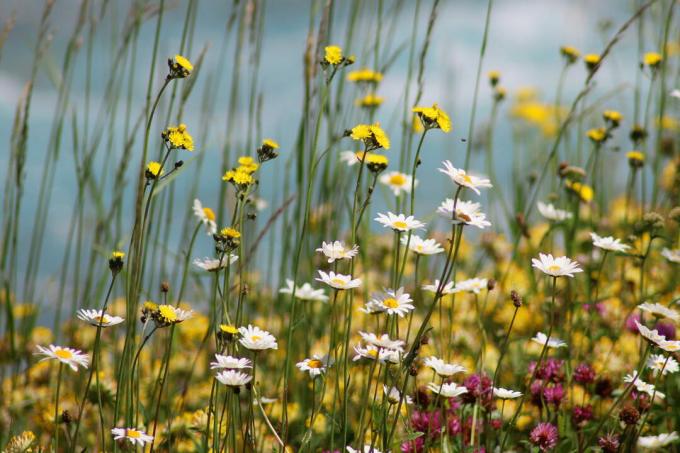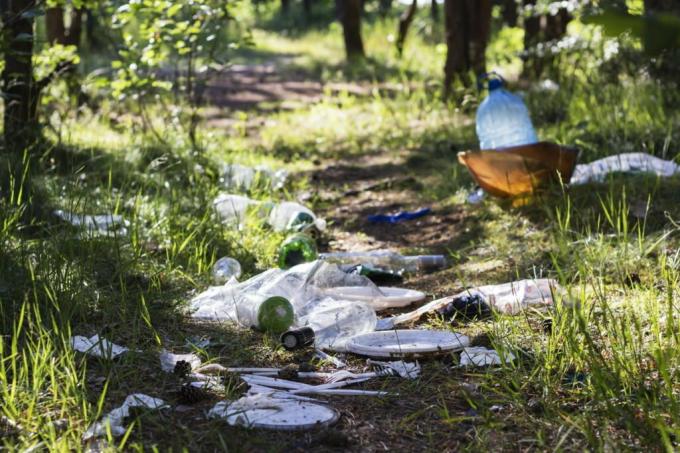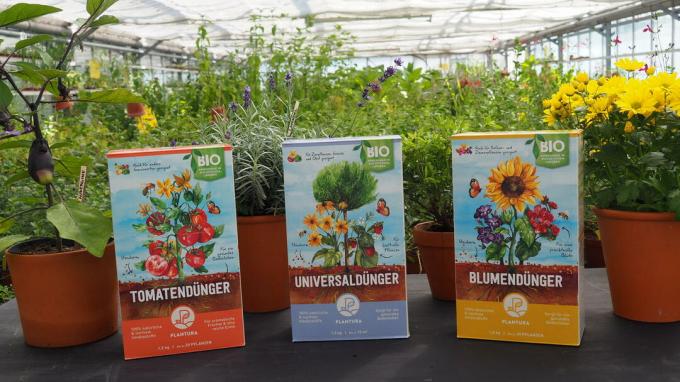Biodiversity concerns everyone. Find out here what biodiversity is, how it develops and what you and your garden can contribute.

Species diversity and biodiversity are also threatened in Germany. However, humanity is heavily dependent on the preservation of this wealth, even if we are often not even aware of it. Gardens can make a very big contribution to the preservation of important living beings, which is why we are here for you We have gathered information and tangible tips on how to turn your garden into a paradise for all living beings can transform.
contents
- Species diversity and biodiversity
- Species Diversity and Biodiversity: Importance
-
What do we have to do with biodiversity?
- Overview: How humans reduce species diversity and biodiversity
- Biodiversity in Germany
- Preserve and protect biodiversity in the garden
Species diversity and biodiversity
Species diversity generally describes the diversity of species occurring in a specific area. Fungal and bacterial species can be meant as well as animal and plant species. Biodiversity, on the other hand, means the diversity that exists within the species. Just as no one is exactly like another, there is greater or lesser genetic diversity within a species.
Species Diversity and Biodiversity: Importance
Diversity is a sign of healthy ecosystems. Many species and a multitude of different genetic types within those species are in the Able to weather adversity in their environment using all of its variations to adapt can. But what does it matter to us humans, how fit the earth's ecosystems are?

In short, functioning ecosystems are our livelihood. We constantly use the services provided by our environment: Our agriculture uses the biological function of the microorganisms that live in fertile soils. Natural waters contribute to the provision of clean drinking water. Plants and algae produce oxygen. Specialized insects pollinate most crops. Plants produce active ingredients that can be used in medicines. The global diversity of plants is a valuable source of new active ingredients or properties that are required in the breeding of cultivated plants.
The destruction of species diversity and biodiversity cuts us off from the benefits of natural cycles and obstructs us us the way to medicinal substances or resistant plants, which should also secure our nutrition in the future.
What do we have to do with biodiversity?
We humans can promote or prevent species diversity and biodiversity. We are currently changing the earth at such a rapid pace that many species can barely keep up with the adaptation and are being decimated. This reduces diversity and ultimately also species diversity if entire species become extinct. This only arises from the natural mutation of the genetic make-up - a diversity that is conditioned by different habitats and a lot of time. Human development, however, hardly allows this development, so that species diversity and biodiversity in many parts of the world are decreasing faster than they can be re-formed.

Overview: How humans reduce species diversity and biodiversity
- Agriculture relies on large-scale monocultures instead of extensive agriculture, which would provide a habitat for many species. The production of meat consumes additional land
- Extinction of species through intensive fishing, hunting or logging
- Destruction of habitats through overfertilization, pollution or restructuring into living space, roads, cultivated land or industrial forest
- Introduction of alien species that are superior to native species and displace them from their habitat
- Climate change in particular also leads to global changes that affect the persistence of specialized species
Biodiversity in Germany
Species diversity and biodiversity are decreasing worldwide and also in Germany. In a European comparison, the Federal Republic is in a bad position, after all, there are more species here endangered, “lost” or verifiably extinct than in many other European countries Countries is the case. The Red List of Endangered Animals shows that in this country more than 5% of the species are already extinct or "lost". Almost 30% are considered to be at risk.

Preserve and protect biodiversity in the garden
It has been proven that even the smallest areas can make a huge contribution to the preservation of species diversity and biodiversity. Incidentally, you as a garden owner (or balcony owner) also benefit from this in a variety of ways. We have therefore put together a few tips for you that will also turn your garden into a true life raft for living things.
Tips for more biodiversity in the garden:
- Use native plants. Domestic insects and animals are prepared for their heyday and fruit supply. Hedges made of native woody plants provide refuge and food for birds, insects and small mammals. Don't rule out wild herbs either: if your garden offers space for a “wild corner”, leave it to nature. The creation of a flowering meadow is also a very aesthetic option. This does not have to be mowed and often prevails year after year.
- Avoid using pesticides in the garden, as these often affect other organisms as well. In a great many cases, there are other ways to contain pests. The creation of habitats for beneficial insects can often limit problems to a tolerable level.

- Use organic fertilizers and organic fertilizers. These incorporate the entire life of the soil and maintain its diversity. Animal-free fertilizers ultimately use less valuable land than animal-based fertilizers. For this reason we have developed our own, animal-free Plantura organic fertilizers: You can find out more about ours here Plantura organic fertilizer Experienced.
- Try not to think of your garden as an outside living room. Let some leaves lie here and there, leave withered shrubs and watch the natural development with interest rather than displeasure. Sometimes interesting animals or beautiful wild plants suddenly settle in, which you reward not least with their sight.
- If your garden still looks very tidy, the best way to create artificial breeding areas is to set up nest boxes or insect hotels. These are all the more likely to be accepted if they are integrated into a diverse environment: no insect will be interested in a beautiful insect hotel on a bare lawn. A particularly interesting living space donor is one, by the way Dry stone wall. This offers different zones of lighting, temperature and humidity and can also be planted very decoratively.
In case you're interested in how your Turn your garden into a bee paradise we have the right article for you here.



